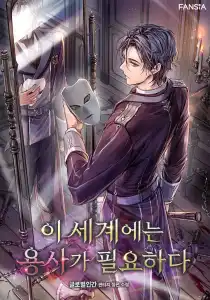Chapter 9: Friends of the Youth Club
Shortly after this conversation, Armand handed over two scripts, Shakespeare's "Timon of Athens" and Milton's "Samson Agonistes," along with various poems and other materials to Joseph.
"These have been piling up in my place for the past two years, almost half a year... You know, I don't have that much time to work on these. Anyway, it's been delayed, so take your time. They're in no rush on that end." Armand told Joseph after giving him the materials. Joseph had just taken leave and was preparing to return to Corsica.
"Joseph, I hope your father is fine, and you can come back as soon as possible," another classmate named Raphael said. "In our discussions, you always provide us with a lot of inspiration. Without you, our club meetings have become rather dull."
"Raphael is right; our club can't do without you," another student named Oronore, who relied on scholarships just like Joseph, chimed in. Emotionally, he was closer to Joseph due to their shared financial struggles.
The club that Raphael mentioned was called "Youth Companions." It was a small group of young people who had different lifestyles and attitudes but shared a common discontent with the present and a variety of idealistic aspirations for the future. In fact, such idealistic youth were quite numerous in various schools in contemporary France.
Joseph knew that many of these seemingly naive and idealistic youth would later become prominent figures in the French Revolution. Their seemingly childish gatherings in the eyes of contemporary people would evolve into political parties. For example, the famous Jacobins had started as a club.
"Youth Companions" was, in fact, the precursor of such a political party. Its members were a diverse group, including those who lived comfortably like Armand, those with meager means like Joseph, prosperous merchant's sons like Raphael, and impoverished families like Oronore. Although their personalities varied - Armand was outgoing and flamboyant, Raphael was mature and easygoing, and Oronore was reserved but resolute when it came to action - they all shared a common view: that the current French system was unjust and needed reform. However, they had not yet fully agreed on how that reform should take place.
Armand's influence from Voltaire was evident. Like Voltaire, he enjoyed using sharp language to satirize the church, but he admired the British-style constitutional system and often brought up the Glorious Revolution and the Bill of Rights when discussing political matters.
Oronore, on the other hand, opposed any monarchy. One of his uncles had fought alongside General Lafayette in North America and had told him numerous stories about the United States. This made Oronore a staunch supporter of a republic. He believed that France should become a republic and opposed any form of monarchy.
Raphael believed that, in theory, a republic was the best, as it aligned with the principles of equality for all. This, in fact, was consistent with the teachings of Christ. "Even the prophet Moses was against monarchy," Lucien said. However, Raphael also recognized that monarchy was a part of France's tradition, and the common people were accustomed to being ruled by kings. Thus, he thought a constitutional monarchy was an acceptable compromise.
Joseph, on the other hand, appeared less concerned with the form of government and more focused on individual rights.
"I don't care who is ruling the country, whether it's a king or a president," he said. "What matters to me is that their power must be constrained, and they shouldn't arbitrarily interfere with my freedom and rights. In the Declaration of Independence of North America, there is a point I strongly agree with: the people have the right to overthrow tyranny. Only power recognized by the entire people is legitimate power. In this regard, I respect whatever choice the French people make."
"Damn, that sounds just like what my uncle said," Armand feigned annoyance.
"Joseph, make sure to come back," Oronore said as he held Joseph's hand.
"If possible, I will return as soon as I can," Joseph replied.
With these words, he lifted his hat to the group and boarded the carriage.
...
Carlo's illness progressed rapidly. By the time Joseph returned to Corsica, Carlo was already in a terminal state. For most of the day, he remained in a coma, with no more than two hours of wakefulness. At this point, the doctors were completely powerless.
In this era, European doctors had only one method for dealing with severe illnesses, bloodletting. Even in the future, stomach cancer would be fatal if not detected early. In this era, there was no technology for early detection, let alone treatment once the disease was found. So, at this point, the doctor simply told everyone, "Mr. Carlo now needs a priest, not a doctor."
Napoleon had also returned, arriving a day before Joseph. When Joseph came back, the whole family was reunited. On this evening, when Carlo temporarily regained consciousness, the priest began the final prayers for him. Carlo's wife held his hand, and the children gathered around him. His gaze shifted from his wife to his children and finally settled on Joseph.
"Joseph..." Carlo spoke in a weak voice.
"Father, I'm here," Joseph replied.
"Take care of the family..." These were Carlo's last words to Joseph.
Unlock exclusive early access to more than 200 chapters before anyone else by becoming a valued member of my Patreon community.New novel chapters are published on







